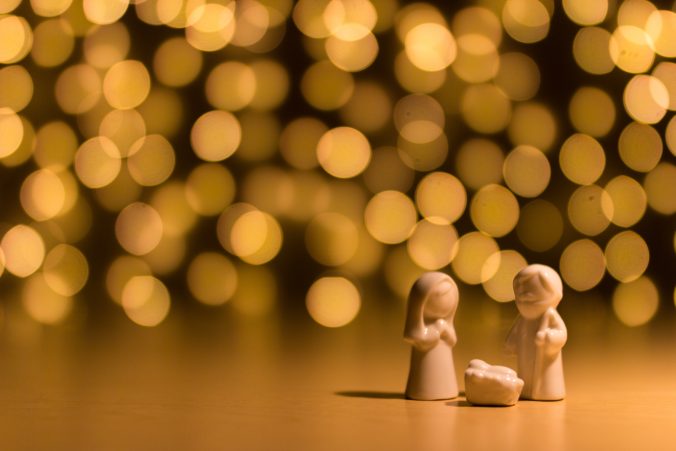We are not a religious household. We have the utmost respect for those who are, but we aren’t.
Still, I insist on putting up a Nativity scene at every Christmastime.
Our setup is filled with what may seem like idiosyncrasies, but in our house they are still filled with meaning (except maybe for the lobsters — those are just a snarky reference meant to equally delight, puzzle and annoy our dear ones!)
A much less ornery addition is the presence of Guanyin, Goddess of Mercy, overseeing everything. It just wouldn’t feel complete without an all-encompassing mother figure.
My deep attachment to the Nativity scene isn’t so much a cultural thing — although I agree that it could be argued, as French Canadian culture is still so deeply permeated, whether we like it or not, with Catholicism.
For me, however, the Nativity scene has come to represent something else, something much more basic, fundamentally human.
WE EACH HAVE OUR OWN MAGIC
Setting up the Nativity scene during the darkest days of the year is a personal ritual during which I take a moment actively remember the potential that we all have — that every person born on this earth has — to create a significant impact in the world around us.
It’s so easy to forget about this, to see ourselves as insignificant, as drifters who essentially go through life without leaving our mark on the universe. And yet, that’s failing to recognize the solid imprint that we make, day in and day out, in the lives of everyone around us, near and far.
With each year that passes, I am increasingly aware of this, and ever more touched by the notion:
EVERY SINGLE HUMAN LIFE IS AN ABSOLUTE GAMBLE.
We, as a species, are capable of absolutely everything, ranging from the purest deeds to the most awful ones, with every uneven shade of grey in between.
We’re actually extremely good at that in-between.
Yet, collectively, instead of just shrinking in fear and assuming the worst, we choose to side with love and light, and celebrate as best we can the arrival of new people to this earth. We unconsciously choose to give new beings the benefit of the doubt: who knows what they can grow up to become?
Why is it, then, that benefit of the doubt is something that tends to fall by the wayside as the years pass? We seem to overlook that quintessential potential that we have and start defining ourselves by our limits rather than by what we are capable of accomplishing. Still. Even as grown-ass adults.
Suppose that our potential isn’t something that wanes with the years, despite what we usually are led to believe? Granted, it may sometimes be trickier to access, with years of accumulated baggage piled over it, but just because we can’t see it doesn’t mean it isn’t there.
Does it always look the same? No. Just as with our own outward appearance, human potential will take different shapes as one’s life evolves. But it doesn’t disappear. Even tarnished by years of neglect, it can be brought back—through love and trust — to its essential, gleaming light.
Now isn’t that cause for celebration?

